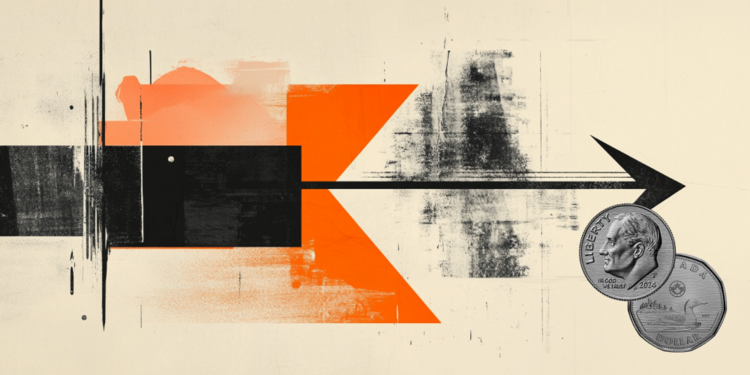- The USD/JPY erases the earlies from the previous session with prices contributing below 143.00.
- The US economic data reveal a possible slowdown in the US labor market.
- The Japanese yen remains resistant despite the increase in tariffs on steel and aluminum, benefiting from their status as a refuge currency.
The Japanese Yen (JPY) is gaining ground against the US dollar (USD) on Wednesday, after a series of economic data publications and the increase in commercial tensions, which have contributed to the appreciation of the YEN.
At the time of writing, the USD/JPY has fallen below 143.00, now serving as psychological resistance with prices approaching 142.60.
The weakness of the US labor market can provide a new opportunity for YEN operators
Wednesday’s ADP employment change data indicated a weakening in the US employment situation of the US private sector. The report shows an increase of only 37,000 jobs in May, below the forecast of 115,000 jobs.
In addition, the Supply Management Institute (ISM) published its purchasing managers index (PMI) for May, reporting a figure of 49.9 for the ISM services PMI, which was much lower than the expected impression of 52.0. This indicates that business conditions and optimism in the US services sector have fallen into contraction territory.
The combination of the decrease in trust in the largest sector of the US and the weakening of the labor market could add pressure on the Fed to cut interest rates before the September meeting.
According to the CME Fedwatch tool, analysts are valuing a 58.5% probability of a rate cut in September, with the expected Fed to maintain interest rates without changes within the range of 4.25% to 4.50% in June and July meetings.
For Japan, the Bank of Japan (BOJ) has reaffirmed its commitment to increase interest rates in response to inflation.
With 50% tariffs on aluminum and steel imports to the US, entering into force on Wednesday, Japan is still vulnerable to the increase in costs that could threaten their industries driven by exports. With tariffs filtering inflation data, the governor of the Bank of Japan (Boj), Kazuo Ueda, has warned corporations and homes about the possible negative implications of the costs associated with the tariff policies of the Trump administration.
On Tuesday, Ueda went to the markets: “The recent tariff policies will exert the downward pressure on Japan’s economy through several different channels.” However, he also stated that the Central Bank is expected to “continue increasing rates if the underlying inflation accelerates to 2% as projected.”
With the USD/JPY highly sensitive to differences in interest rates between the United States (USA) and Japan, interest rates expectations remain a prominent engine of price action. However, with the BOJ in a position to increase the rates and the expected Fed to cut, the divergence that narrows between the respective central banks could provide short -term support for the Yen, particularly if the US labor market shows signs of weakening.
And in Japanese faqs
The Japanese Yen (JPY) is one of the most negotiated currencies in the world. Its value is determined in general by the march of the Japanese economy, but more specifically by the policy of the Bank of Japan, the differential between the yields of the Japanese and American bonds or the feeling of risk among the operators, among other factors.
One of the mandates of the Bank of Japan is the currency control, so its movements are key to the YEN. The BOJ has intervened directly in the currency markets sometimes, generally to lower the value of YEN, although it abstains often due to the political concerns of its main commercial partners. The current ultralaxy monetary policy of the BOJ, based on mass stimuli to the economy, has caused the depreciation of the Yen in front of its main monetary peers. This process has been more recently exacerbated due to a growing divergence of policies between the Bank of Japan and other main central banks, which have chosen to abruptly increase interest rates to fight against inflation levels of decades.
The position of the Bank of Japan to maintain an ultralaxa monetary policy has caused an increase in political divergence with other central banks, particularly with the US Federal Reserve. This favors the expansion of the differential between the American and Japanese bonds to 10 years, which favors the dollar against Yen.
The Japanese Yen is usually considered a safe shelter investment. This means that in times of tension in markets, investors are more likely to put their money in the Japanese currency due to their supposed reliability and stability. In turbulent times, the Yen is likely to be revalued in front of other currencies in which it is considered more risky to invest.
Source: Fx Street
I am Joshua Winder, a senior-level journalist and editor at World Stock Market. I specialize in covering news related to the stock market and economic trends. With more than 8 years of experience in this field, I have become an expert in financial reporting.





